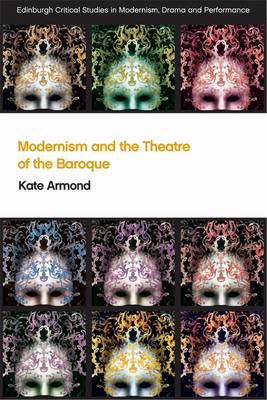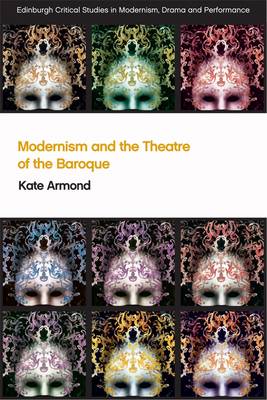
- Afhalen na 1 uur in een winkel met voorraad
- Gratis thuislevering in België vanaf € 30
- Ruim aanbod met 7 miljoen producten
- Afhalen na 1 uur in een winkel met voorraad
- Gratis thuislevering in België vanaf € 30
- Ruim aanbod met 7 miljoen producten
Omschrijving
First comparative study to address the rediscovery of baroque aesthetic in modernism
Did you know that seventeenth-century philosophy influenced dance theory and evolutionary science during the modernist period? Or that in England, Italy and Germany the term 'baroque' was used almost exclusively as an insult until the 1900s? Modernism and the Theatre of the Baroque fashions an independent aesthetic for modernist writers and texts that challenges many high modernist qualities promoted by James Joyce and T. S. Eliot. Providing a fresh interpretation of the works of Djuna Barnes, Wyndham Lewis, Edward Gordon Craig and Isadora Duncan, the book broadens our understanding of modernist priorities and demonstrates how readily these ideas translate across genres. It shows that modernists are not passive recipients of baroque stereotypes but are instead painstaking in their research and innovative in their reworking of original sources. This is an introduction to key ideas, characters and techniques that will allow the baroque to be used as a conceptual and historical framework for analysing modernist achievements, thereby opening up new opportunities for further research.
Key features
Specificaties
Betrokkenen
- Auteur(s):
- Uitgeverij:
Inhoud
- Aantal bladzijden:
- 192
- Taal:
- Engels
- Reeks:
Eigenschappen
- Productcode (EAN):
- 9781474419628
- Verschijningsdatum:
- 18/12/2017
- Uitvoering:
- Hardcover
- Formaat:
- Genaaid
- Afmetingen:
- 157 mm x 239 mm
- Gewicht:
- 430 g

Alleen bij Standaard Boekhandel
Beoordelingen
We publiceren alleen reviews die voldoen aan de voorwaarden voor reviews. Bekijk onze voorwaarden voor reviews.











